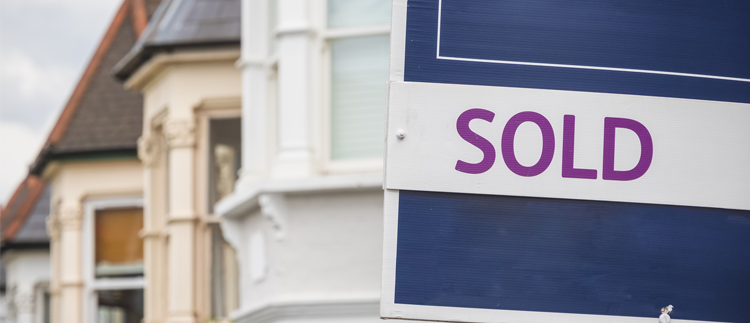Plot twist: its a great time to buy a home! Heres why…
Overview
Rocketing energy prices, bigger bills and increased interest rates. Scary headlines everywhere. Right now might seem like a tricky time to be buying a home, but the reality is very different...
With so much about the soaring cost of living in the headlines, as well as another hike in interest rates, it’s not surprising for potential buyers to feel cautious at the moment. We asked TMP The Mortgage People’s Kelly McCabe and Jaspal Tumber to give us the inside track on what’s really happening out there in the world of Shared Ownership mortgages.
Go behind the headlines
In recent months, the Base Rate (the national interest rate) has increased from 0.5% to 4% after more than a decade of being at a historically low level. Mortgage rates have risen in turn and, according to the press, this was officially a BAD THING. Admittedly, this isn’t the best turn of events, but rates are still at a reasonable level – especially when compared to past decades.
“Rising interest rates is a concern with a lot of our first-time buyers, but you have to put the situation into context” says Jaspal, “because the effects of these rises are less dramatic for Shared Ownership mortgages. If you're borrowing a large figure, say £200,000-£300,000, then going from previous rates of around 2-3% up to 5-6% will make a big difference to your monthly payments.
“But with Shared Ownership you’re buying a percentage of that property, and so a percentage of the mortgage amount. In real terms, the additional monthly costs are about £50 in many cases, and as low as £10 in some. It’s easy to look at the top figure and become disillusioned.”
Every little helps “Plus, if you don’t buy, what are your other options?”, continues Jaspal. “If you rent, you’ll still be paying bills. And depending on the property, those bills are very likely to be higher than those of a Shared Ownership home – nearly all of which are new builds. “Their energy performance is amongst the best there is – whereas some rental properties don't even have double glazing!”.
Kelly McCabe adds that, “Most new builds also come with added assurances, like 10 years’ essential repairs contributions. You don’t get those kind of things on the open market, and they can really save you money when you need it”.
A slowing market?
As a consequence of those interest rate rises mentioned earlier, you may have seen media reports of a ‘slow down’ in property prices over the last few months. Again, this sounds like BAD NEWS, but as Kelly explains, “It’s worth getting your head around the language here. A ‘slowdown’ doesn’t mean a ‘drop’. So often, when headlines say a ‘drop’, they mean the speed at which prices are increasing is slowing.” In other words, the price of property is still increasing, but just not as fast as it has been. And when prices are going up, it means that demand is strong. Which means, “If you've got a house in mind, don’t hang around. You could you wait five or six months before you buy, but is it still going to be available?”
There’s no “right” time to buy
With the property market constantly shifting and every buyer having their own story and circumstances, nobody can ever determine the definitive ‘right’ time to buy. As Jaspal explains, “It comes down to you in the end. What’s your lifestyle? What’s going on with work? How might your circumstances change?”
It’s easy to get wrapped up in predicting the future when trying to pinpoint a ‘good time to buy’, but tread with caution. Says Jaspal, “No one really knows what the future holds – we had a global pandemic a couple of years ago and no one saw that coming – but that said, there are some situations that can be reasonably assumed. For example, a graduate starting out in work isn’t likely to be on big money straight away, but as they progress they can expect their earnings to rise relatively quickly. They can factor this into their buying decision.”
Affordability, affordability, affordability
Kelly adds: “Taking a good hard look at what you can afford today is really important. Consider your income, your current circumstances and what feels affordable. Work out your spending habits. Don't kid yourself that you're not going buy clothes or not going to go out anymore. Buying a home is not about sacrificing the things you enjoy; it's about creating that balance, thinking ‘OK, I might have to go out fewer times a month, but it’s feels like a reasonable compromise for getting on the property ladder’.”
Working out what you can afford will give you a budget. And when you have a budget, you’ll soon see if you can make the repayments on a mortgage or not. (Which also makes fretting about mortgage rates kind of redundant.)
Plus, as Jaspal adds: “From our end, there are also things we can do to help things along, like extending the mortgage term or suggesting that you buy a lower percentage share of the property. These are individual adjustments that we make all the time to get people into the homes they need.”
Let’s do this!
One final piece of advice from the team at TMP The Mortgage People is: “Enjoy the process!” After all, buying a home is an exciting milestone and should make you happy. Says Kelly: “There’s no doubt that it’s a big responsibility that you need to go into with your eyes open, but getting the right advice is invaluable. We often find new options that people hadn’t even considered and before they know it, they’re picking up the keys!”
Our thanks goes to TMP The Mortgage People for contributing to this blog.

